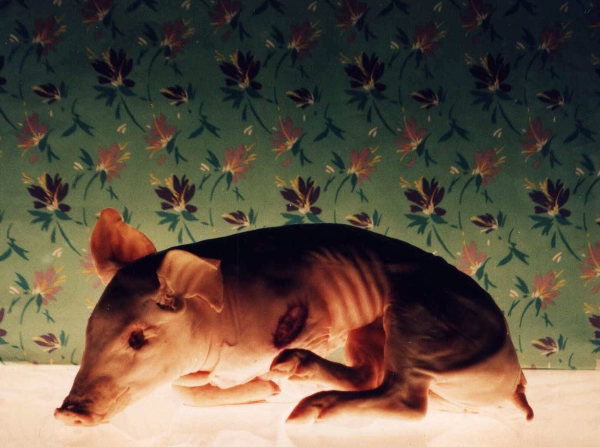ILHA DAS FLORES (Island of flowers)
Director: Jorge Furtado
Executive Producers: Monica Schmiedt, Giba Assis Brasil and Nora Goulart
Written by: Jorge Furtado
Cinematographers: Roberto Henkin and Sérgio Amon
Art Director: Fiapo Barth
Music by: Geraldo Flach
Production Coordinator: Nora Goulart
Editor: Giba Assis Brasil
Assistant Director: Ana Luiza Azevedo
A Casa de Cinema PoA Production
Main Cast:
Paulo José (Narration)
Ciça Reckziegel (Dona Anete)
Prizes
- 17th Gramado Film Festival, 1989:
Best short film (official jury, popular jury and critic's prize), Best Screenplay, Best Editing and 4 Regional Prizes. - 40th International Filmfestival, Berlim, Germany, 1990:
Silver Bear. - Air France Prize, Rio de Janeiro, 1990:
Best Brazilian Short Film of the year. - Silver Daisy Prize (CNBB), Brasília, 1990:
Best Brazilian Short Film of the year. - 3rd International Short Film Festival, Clermont-Ferrand, France, 1991:
Special Jury Prize, Best Film (Popular Jury). - American Film and Video Festival, New York, 1991:
Blue Ribbon Award. - 7th No-budget Kurzfilmfestival, Hamburgo, Germany, 1991:
Best Film. - Festival International du Film de Region, France, 1994:
Best Film.
Reviews
"The best film (of the) Gramado Film Festival lasts less than 20 minutes and tells the story of the journey of a tomato. After the showing of ILHA DAS FLORES (ISLAND OF FLOWERS), Embaixador Theater heard the biggest ovation this year. The directors of all the other films who had expectations of winning the Kikito for best film had to throw in their towels. (...) There is no doubt: ILHA DAS FLORES (ISLAND OF FLOWERS) is a masterpiece. After it, documentary will never be the same."
(Artur Xexéo, JORNAL DO BRASIL, Rio de Janeiro, 17/06/89)
"There has never been anything like it in the 16 previous editions of the Gramado Film Festival: the entire audience of an overcrowded theater at the Palácio dos Festivais stood up and applauded, hysterically, a short film. (...) The 13 minute film ILHA DAS FLORES (ISLAND OF FLOWERS) hit the Festival with the force of a CITIZEN KANE: it is new, original, funny, hard hitting and, finally, moving, closing with a quote by Cecília Meirelles: 'freedom is a word that the human dream feeds on, that no one can explain or fail to understand."
(Edmar Pereira, JORNAL DA TARDE, São Paulo, 17/06/89)
"The only documentary among the 13 shorts selected in the festival pokes fun at its own gender. With originality and creative vigor, it dismantles the patronizing discourse which is the basis of most Brazilian documentaries. (...) an ingenious narrative building in a crescendo that takes your breath away. (...) ISLAND OF FLOWERS is the result of a very special alchemy, where everything works. It is full of humor, but it never turns tragedy (...) into a laughing matter. Jorge Furtado has invented the cruelty-documentary."
(Maria do Rosário Caetano, CORREIO BRAZILIENSE, Brasília, 17/06/89)
"ISLAND OF FLOWERS, by Jorge Furtado, winner of the Silver Bear in Berlin'90, is a political film that makes you laugh with sarcasm from beginning to end. In only 13 minutes, it says everything one needs to know about who is responsible for the massacre of the planet Earth, starting from trash and one tomato."
(Roberto Silvestri, IL MANIFESTO, Milano, 07/03/91)
"A powerful, unpredictable piece on man's inhumanity to man... A pungent social satire, the visual poem reads like a comic political essay written by James Joyce in a mock documentary style... A remarkably unconventional use of media as parable. Recommended for film, art, social, intercultural, and political studies."
(Choice Magazine)
"The human disaster of poverty is brilliantly depicted here. Anyone who wishes to stimulate an exploration of our human condition - of work and poverty, of despair and hunger, and of moral challenge - will find this an extraordinarily powerful and important video."
(Hospital & Community Psychiatry)
15/06/1989








